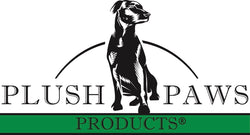
Every pet owner wants their furry friend to lead a long, healthy, and happy life. A key component to achieving this is regular veterinary check-ups. These visits are much more than routine examinations; they are critical in preventive care, ensuring your pet stays in top health.
This article explains the numerous benefits of regular vet visits, emphasizing why they are essential for the well-being of your beloved pet.
Early detection of health issues
Quick Intervention: Regular check-ups allow vets to detect health problems in their beginning stages, often before your pet shows any symptoms. Early detection means early treatment, which will be less invasive and more effective.
Common Conditions: We'll explore how dental disease, obesity, arthritis, and heartworm are spotted and managed more easily when caught early. Understanding these common ailments underscores the importance of regular vet visits in preserving your pet's health.
Vaccinations and preventive medications
Staying up-to-date: Vaccinations play a pivotal role in the health and well-being of pets, offering protection against a range of potentially deadly diseases. Each vaccine targets specific viruses or bacteria, such as rabies, distemper, parvovirus, and feline leukemia, providing your pet with the necessary antibodies to fight these illnesses.
Vaccine Schedules: Regular vet check-ups ensure adherence to vaccination schedules, which are crucial for maintaining immunity over your pet's lifetime. Puppies and kittens require a series of vaccinations in their first year, with boosters in adulthood. The frequency of these boosters varies depending on the vaccine type and the pet's lifestyle.
Tailored Vaccination Plans: Vets assess factors such as your pet's age, medical history, travel habits, and exposure to other animals to create a personalized vaccination plan. This approach ensures your pet isn't receiving unnecessary vaccines while still being protected against prevalent diseases in your area.
Monitoring Vaccine Reactions: While adverse reactions to vaccines are rare, vets monitor for them during regular check-ups. They address any post-vaccination issues, ensuring your pet's safety and comfort

Preventive care: flea, tick, and heartworm medications
Preventive medications are crucial in protecting pets from parasites and the diseases they carry.
Flea and Tick Prevention: Fleas and ticks are not only a nuisance; they transmit diseases and cause serious health issues.
It's crucial to apply flea and tick preventives regularly, which come in various forms, such as topical solutions, oral medications, or collars. Vets will suggest the most appropriate product tailored to your pet's health needs and level of exposure risk.
Heartworm Prevention: Heartworm disease, transmitted by mosquito bites, is sometimes fatal for pets. However, it's easily preventable with regular medication. Vets usually conduct a heartworm test before starting preventive treatment and recommend continuing it year-round or seasonally, depending on the geographical location and mosquito activity.
Integrating Preventive Care: During check-ups, vets incorporate these preventive treatments into your pet's overall health care plan. They also offer the opportunity to educate pet owners about the signs of infestations, the importance of year-round prevention, and the best practices for applying these treatments.
Regular vet visits thus ensure that your pet's vaccinations are up to date and receive the necessary preventive care against common parasites. This proactive approach safeguards your pet's health and contributes to a happier, more comfortable life for your furry companion.
Nutritional counseling and weight management
Tailored Diets: Vets provide personalized dietary recommendations based on your pet's age, breed, and health status.
Weight Check: Regular weight checks help prevent obesity, a leading cause of pet health problems.
Behavioral assessments
Identifying Changes: Vets spot changes in your pet's behavior that might indicate health problems.
Dental health - oral exams
Oral health is a crucial yet often overlooked aspect of overall pet well-being. Regular oral examinations conducted by a veterinarian play a pivotal role in preventing dental diseases, which, if left unchecked, could lead to significant health issues.
Detecting Dental Problems Early: During an oral exam, vets look for signs of gum disease, tooth decay, or other dental conditions. Early detection of these issues is key to preventing pain, tooth loss, and more serious health complications from poor oral hygiene, such as heart or kidney disease.
Evaluating Oral Hygiene: Vets also assess the overall condition of your pet's mouth, including plaque and tartar buildup, which are primary contributors to dental disease. These exams provide an opportunity to identify any need for professional dental cleaning or treatments.
Oral Health as an Indicator: A comprehensive oral examination reveals signs of other health issues. For instance, certain oral symptoms like bad breath or inflamed gums indicate systemic problems like diabetes or gastrointestinal disturbances.
Dental care tips
Maintaining your pet's dental hygiene is critical to its overall healthcare routine. Veterinarians offer invaluable tips and advice on how to keep your pet's teeth and gums healthy.
Regular Brushing: Like in humans, regular tooth brushing is the most effective way to clean your pet's teeth. Vets demonstrate the correct brushing technique and recommend pet-safe toothpaste.
Dental diets and treats
Specific diets and treats actively reduce plaque and tartar buildup in pets. Vets will suggest appropriate products that satisfy your pet's nutritional needs and aid in dental care.
Chew Toys: Chew toys are an effective way to help control plaque and tartar. Vets recommend safe and appropriate toys that help clean your pet's teeth as they chew.
Signs to Watch For: Vets educate pet owners on signs of dental issues to watch for, including bad breath, difficulty eating, drooling, or pawing at the mouth, which could indicate the need for veterinary attention.
Professional Cleanings: Sometimes, pets require professional dental cleanings to remove tartar buildup and address any oral health issues. Vets will advise when such cleanings are necessary and what they involve.
Incorporating these dental care practices into your pet's routine, guided by your vet's advice, is essential for preventing dental diseases and promoting overall health. Regular oral exams and proper dental hygiene vastly improve your pet's quality of life, keeping them happy, healthy, and free from oral discomfort.
Updated health records
Keeping track: Regular veterinary visits are essential for maintaining a comprehensive, up-to-date health record for your pet. These records are crucial, especially in emergencies or when specialist care is needed.
Importance in emergencies: In emergencies, immediate access to your pet's medical history allows veterinarians to make quick and informed decisions. This could be lifesaving, especially when dealing with allergic reactions, chronic conditions, or past surgeries that may influence treatment options.
Referrals to specialists: A detailed medical history is invaluable when your pet needs a specialist. It ensures the specialist fully understands your pet's health background, allowing for more precise and tailored care.
Travel and Relocation: If you relocate or travel, up-to-date health records are necessary for pet boarding, international travel, or registering with a new vet.
Health trends: monitoring changes over time
Consistent veterinary records are not simply a log of visits and vaccinations; they provide a narrative of your pet's health over their lifetime.
Spotting Health Trends: Regular entries allow veterinarians to track changes and identify trends in your pet's health. This might include noting shifts in weight, behavior, blood work results, or response to treatments.
Preventive Health Strategies: By understanding these trends, vets recommend preventative measures tailored to your pet's needs. This proactive approach helps ward off potential health issues before they become serious.
Aging Pets: For senior pets, consistent records are especially important. They help vets recognize the early signs of age-related conditions like arthritis, organ dysfunction, or sensory decline, ensuring timely intervention and management.
Informing Lifestyle Changes: Changes in your pet's health records also inform necessary adjustments in their lifestyle, diet, or exercise regime, contributing to their overall well-being and quality of life.
Senior pet care
Special Attention: Older pets have different care requirements. Regular check-ups help monitor age-related issues like joint health, vision, and organ function.
Customized Care Plans: Learn about the tailored care plans that vets create for senior pets, ensuring their comfort and health in their golden years.
Building a relationship with your vet
Trust and Comfort: Regular visits help you and your pet build a trusting relationship with your vet.
Better Communication: This familiarity improves communication, allowing for more personalized care and advice tailored to your pet's needs.
Discover Plush Paws!
At Plush Paws, we're passionate about enhancing your dog's adventure experiences. Our premium car seat covers are designed specifically for pet owners who love bringing their furry friends along on their travels. These covers keep your car clean and ensure your dog's comfort, whether you're off to a nearby park, embarking on a hiking journey, or popping into the pet store.
Our seat covers protect fur, dirt, and moisture, all while adding a luxurious feel to your car's interior. Crafted from robust materials, they're durable, easy to fit in most car models, and come in various styles to suit your and your pet's preferences.
Understanding the uniqueness of each dog and vehicle, we offer a diverse range of cover options. Our user-friendly website simplifies your search for the perfect cover, and our commitment to outstanding customer service means we're always here to assist you. Additionally, we provide valuable tips and resources for pet travel, ensuring your dog remains calm and happy on every trip.
Opt for Plush Paws for an ideal car seat cover that elevates your travel experiences with your pet. Contact us today at help@plushpawproducts.com or call us at 440-290-4155 to begin your next adventure with your canine companion by your side!


